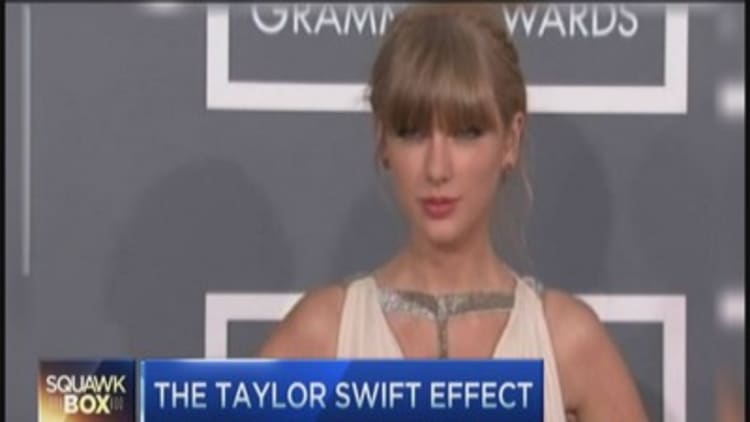The music industry—in the form of album sales—may be dying a long slow death for everyone else, but not for Taylor Swift.
Her "1989" album is on track to sell 1.2 million copies in its first week, just 100,000 fewer than her last album, "Red," sold in 2012. Apple says 1989 broke the pre-order record in its U.S. store, and Billboard reports in its first day, "1989" sold more than 600,000 albums, mostly from Target, which carried an exclusive version.
If Swift's latest album hits 1.2 million, as it's on track to do, it would be a meaningful record for a number of reasons: It would be the first album to go platinum (sell more than 1 million copies) this year—the first to top that number since Swift's last album, "Red," in 2012.
Swift would be the only artist to hit 1 million albums sold in a week three times. And it would be a surprise: with the ongoing decline of the music business, projections were as low as 750,000. But the upside surprise is proof that people will still shell out money for the biggest stars, and Swift is brilliant at connecting with her loyal fans through social media.

Swift is a maestro of social media. On Twitter and Instagram she counted down the hours until the album release. She has 70.7 million followers on Facebook, 46 million followers on Twitter, and 12.7 million followers on Instagram. And she works at it—she Tweets and shares photos. And she goes above and beyond the standard protocol to engage with fans—she held "secret sessions" to play them the album—then took photos with the fans for them to share. Swift's website features postings from fans about the "1989 Secret Session Experience." And of course she's been making the rounds, appearing on "GMA," "the Late Show," and "The Voice."
So who cashes in on the hit album? Of course Swift and her independent record company, Big Machine. Universal Music's Republic Label is a distribution partner of Big Machine, and Universal Music is a subsidiary of Vivendi.
Read MoreWhy more people are buying records again (that's right)


